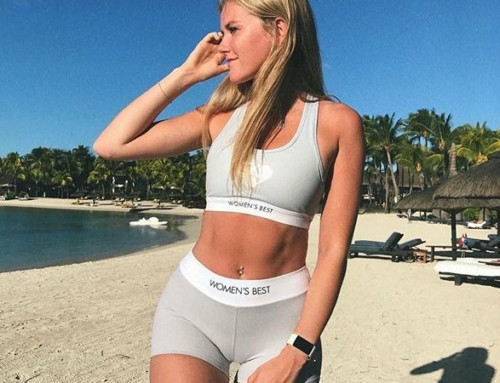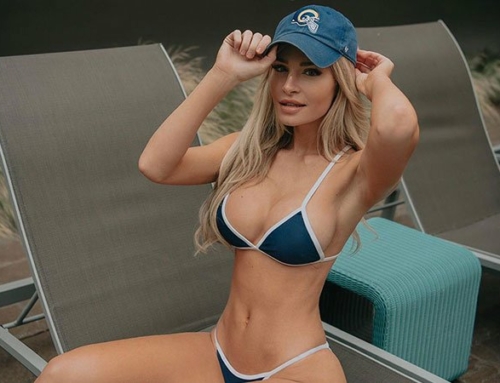
June 29 2016
I let Dev Hynes pick the place for us to jump-start this interview, and he chose the slickly stylized, Jamaican-themed joint Miss Lily’s, smack dab in the heart of New York’s Greenwich Village. A convivial meeting hub for artists, intellectuals, tourists, and anybody jonesing for jerk chicken, the colorful restaurant happens to be blocks away from the legendary cafés, clubs, and haunts once populated by Lorraine Hansberry, Nina Simone, James Baldwin, Bob Dylan, Allen Ginsberg, and way too many other iconic notables to list here. Hynes and I both happen to be born to Caribbean parents—his mother is Guyanese; my parents hail from Trinidad—and we’re also both downtown New York residents by choice, so the bustling neighborhood locale feels cosmically aligned. Plus, as he says, it reminds him of his UK origins, South London in particular.
After an unfortunate mishap with some takeout that ends up splattered on the pavement, Hynes ditches his PR team, and the two of us saunter down Sullivan Street. As an interviewee, Hynes is unpretentiously folksy and laid-back, so much so that it’s easy to overlook just how monumental his impact on pop has been over the years. From his mid-2000s stint making cosmo-fusion rave punk with Test Icicles, to his galvanizing solo emergence as neo-pastoral waif Lightspeed Champion, to the way his alt-pop-productions-for-hire helped give startling dimension and depth to starlets like Solange and Sky Ferreira, Hynes’ rapid ascent as an in-demand, self-contained producer/performer/songwriter has helped redefine the concept of the black musical übermensch after stalwarts like Isaac Hayes, Prince, Babyface, and R. Kelly. Released under his Blood Orange alias, 2011’s Coastal Grooves and 2013’s Cupid Deluxe were fascinating showcases for Hynes’ nostalgic, deeply earnest yearning for the black queer artistic and intellectual life of the 1980s and early ’90s, a theme that continues on his latest album, Freetown Sound.
“With Cupid Deluxe, I was trying to make something that was like a mixtape that is given to someone,” he explains. “This one is more like a personal mixtape that you would make for yourself—a messy, in-your-own-world, headphones vibe.”
As a producer and songwriter, Hynes draws on an astonishingly rich archive made up of wildly diverse and sometimes forgotten sounds and styles of the past; it’s all in service of a contemporary, chilled-out, ethereal, fusion pop that we might call The Dev Hynes Sound. Along the way, his eccentric musical and visual choices have made him a unique emblem of destabilized, fluid expressions of gender, sexuality, and race. As our interview unfolds, I begin to see Hynes as an exquisite tastemaker who has somehow managed to find a way to feel free enough to pursue the volcanic, hyper-associative ideas in his head and his heart, no matter the personal cost or industry implications.
The title Freetown Sound refers to the birthplace of Hynes’ Sierra Leonean father—but it also seems fitting given that the emotionally charged record is populated by cameos from late queer icons like filmmaker Marlon Riggs in the form of carefully placed samples; fitting that the album will find its way to listeners just weeks after the mass shooting at a gay nightclub in Orlando. It serves as an abstract musical reminder that we may be a lot less free than we sometimes think we are.
In the broiling afternoon sun, Hynes and I stroll a few more blocks and wind up at Washington Square Park, at the southern end of opulent Fifth Avenue. Brimming with eager NYU students, camera-toting tourists, breakdancing hucksters, contemplative painters with easels, and all manner of wannabe hippies, the park is where Hynes took daily sojourns to conceptualize and write much of Freetown Sound. We talk about the locale’s controversial history in the late 17th century as “The Land of the Blacks”: That was when the Dutch gave the park to “freed” slaves (their children were not free, though) in the hopes that they’d serve as intermediates to provide respite from hostile indigenous aggressors.
As we sit on a park bench to begin the interview in earnest, our attention spans are under constant assault by a barrage of everyday noise and visual activity that crosses our path like a moving panorama. At one point, iconic visual artist Chuck Close passes by, close enough that we could reach out and touch him. Escorted in a wheelchair, the 75-year-old is rocking an unmissable, electric pair of African print pants. “I’m a big fan, I’m low-key freaking out,” Hynes exhales after Close rolls away. I’m rarely starstruck; I doubt Hynes is either. But witnessing this strange New York moment is a kind of insider’s spectacle that leaves us both a bit speechless.
Pitchfork: A lot of the record was written here in Washington Square Park. What is it about this place?
Dev Hynes: I love parks in New York. It’s like a peaceful chaos. I’ll write song arrangements here, music notes on staff paper, lyrics. I have a million notebooks. Too many notebooks. I’m also really picky about the type of notebook I need to use, but they can vary! It actually sums me up in so many ways: I’m very whatever, but also, it has to be like this.
Go with the flow, in a specific direction.
Exactly! I read a lot in parks too. I usually read six books at the same time, bouncing between stuff. I wouldn’t be alive without books.
So parks are a place for you to absorb and produce at the same time?
Definitely. I record a lot of the audio that happens. It’s all through the album, and a lot of it is from here and just walking around Broadway and the East Village and Central Park. The beginning of “With Him,” for example, is a recording of an opera singer under the bridge in Central Park—she was so good, and it sounded crazy going through the park, because there was also someone playing saxophone. So I stood at the point where I could hear both musicians and recorded it. It’s funny, because I’ll often hear something while in a conversation with someone and then I’m getting my phone out on the sly, trying to record it. I also try to make things sound like they’re in the park or like they’re street recordings. There’s a lot of things I try to make sound like samples, but it’s really me playing it all.
I love the intertextuality of your music—the idea that anyone listening has to know and recognize multiple texts that are speaking to each other in order to go deeper into the work. I hear it as a scroll, like a Twitter feed, with ideas and hyperlinks.
My friend always used to say that my brain is like a browser that has open tab links, like, “We’ll go back to that tab in a second.” That is really how I am. It’s like a spiderweb. I won’t even know how I got to a place. And if you were to ever look at my computer, I have like 50 tabs open.
Do you go back to tabs once you’ve clicked away?
I go back to them all the time.
The album reflects that: There are recurring motifs, lyrics, melodies.
The line “you chose to fade away from me” comes back a lot throughout the album. When I first wrote that melody, it was about a couple of friends of mine that overdosed on heroin and died in the last few years. That’s why I was singing about the choices that people have made: “You chose to fade away with him, I chose to try and let you in.” Then, as I was working on the album and thinking about the phrase, it started to become almost like a call for wanting warmth and closeness. The simple idea of someone letting you in is a beautiful thing.
Vulnerability?
Exactly, which I’ve always believed is such a strength. It’s not saying to be a victim, but just knowing what your weaknesses are and being able to get help.
The cover of Freetown Sound features a photo by Deana Lawson titled “Binky & Tony Forever.”
With the title Freetown Sound you’re referencing Sierra Leone, where your father is from. What does it mean to think about that place and your parents’ journey in terms of freedom? What’s the takeaway there?
Well, there really isn’t a takeaway, especially on this album. You’re just kind of listening to me thinking for 58 minutes. There’s no real solution or answer. A lot of the things on the album are discussing the idea of religion, and how some people love the hope it gives them, while others feel it’s like an iron first on top of them. But it really is the many-tabs thing happening in my head: Growing up, Christianity made me use my right hand when I’m left-handed; then I wonder what Christianity was like in ’50s in Sierra Leone; then I think back to how Christianity got to West Africa. It’s all these things, and that’s what the album’s doing—it’s me looking and studying.
In that sense, Freetown Sound is a post-colonial album. It’s about decolonizing the mind, but also exploring what it means in 2016 as a black person to be moving through the world in the pursuit of liberation.
Yeah, 100 percent. There are also moments based on things that aren’t so deep in the past, like the end of “Chance,” which is about when I went to see an A$AP Rocky and Tyler, the Creator show. I saw a white girl with blond cornrows wearing a “Thug Life” T-shirt and she was doing a lot of poses, all that shit. I remember thinking, No one really cares what Thug Life means. To Pac, it meant: “The Hate U Give Little Infants Fucks Everyone.” But people don’t know that, and a lot of people don’t think about looking deeper. Like, when he would say “nigga,” it meant “Never Ignorant, Getting Goals Accomplished.” I’m not even judging the girl. I’m just thinking about these things and where I’m at right now in my life and race and appropriation. I’m not saying that I’m right about everything, but everyone should be aware of where things come from. Obviously, that’s a huge ask. But if they aren’t aware, I think they should admit it. Was it Kylie Jenner who was called out for wearing braids? And she gave some ignorant-as-fuck response?
Yeah, among others…
When I see those people get defensive, I’m like, “Take the L!” It’s crazy. I mean, right now we’re here having a conversation in a park that was given to freed slaves to help ease relationships with other slaves—and those slaves were then told that their kids would be born into slavery! They were like: “Don’t worry about the hanging tree in the back, you’ve got the park! It’s fine!” That’s just one part of our day, because I want to sit in a park. So if we call you out, like, “Yo, you’re aware where your hairstyle comes from and you’re cool with that?” If you know, just be like, “Yeah, I see that and I liked the hairstyle and wanted it.” No one’s trying to say, “You can’t have this hairstyle.” Maybe some people do say that. I don’t really give a fuck. If you’re unaware, just admit that you’re unaware.
What you’re pushing for is actually what the album represents, which is context. You’re making history talk to the present and making the present talk to history.
That’s all it is. I had to really assess my own self-worth to even be able to get to that point. Because when I make these albums, I’m making tons and tons of music every day for like two years. Then it really just hits me and I spend a couple of months going crazy 24/7 by myself, fine-tuning it, and then it’s done. But before I got to that point with this album, I had to realize a lot of things about how I’m seen, which was strange.
How so?
I became aware that this is the time when the most people have cared about what I’m doing. Well, not a lot of people, it’s not like some Beyoncé shit. But it was a weird moment, just in terms of me in the world as a young black man. So I started thinking about that more, and that was affecting everything as I was writing, making me a more direct person than I ever was before. I went from being very insecure about myself—just from growing up and having crazy bullying shit—to being very secure. I’m aware, as a black musician, that I will never be seen on par with white people that do what I do. That’s just what it is. A white guy showing soul is so much more interesting to people than a black person showing soul.
It’s this idea that white people engage a magical energy when they attempt to embody blackness and do it in a way that black people cannot because we are black.
Yeah, we’re black! We can’t show it!
Do you feel constrained by that?
It never used to bother me but then it started eating away.
You can’t help but internalize it.
I work so hard and practice music and study and produce, and then people always act shocked when I do something. I remember putting out a song called “Delancey,” which was basically my voice and the cello, and then some website tweeted that I was inspired by a random pop song with strings on it. But I’ve been playing classical cello since I was 11 years old. It’s not like I just heard this song and hired a string player. Shit like that happens to me a lot. I had to school someone in an interview last week because they were talking about the saxophone in my music in regards to modern musicians that throw saxophone solos in. I had to be like, “You’re talking to a black musician—you’re aware that saxophones existed before the ’80s?”
They think “Careless Whisper” was the beginning of sax solos in music.
There are parts of the album where the saxophone solo is an ode to Eric Dolphy. And then parts where I’m trying to get a John Coltrane moment. And arrangements where I kind of hit on Alice Coltrane.
Your music demands a certain knowledge to be able to make those connections—you’re making music that has an intellectual component at a very anti-intellectual time in our culture.
I’m down for the conversation, man. I’m not even asking for people to listen and be like, “Damn he’s on some like Eric Dolphy shit.” I mean, that would be amazing, of course, but I’m just saying that, if you’re gonna come at me with this stuff, just think for a second.
As far as weaving in the past, you’ve also mentioned being inspired by sampling legends the Dust Brothers and J Dilla on this record.
Dilla is just such a huge influence, he’s a genius in a league of his own. I obviously love his beats, but for me,
I like listening and making music almost like it’s a beat tape; I really love the collage of sounds. Splicing. Half-cuts. I love the feel of Paul’s Boutique. I’ve listened to that album my whole life, but I couldn’t tell you how many tracks are on it or what the names of the tracks are. I just love the idea that you turn it on at any point and you’re in that world, and you can just keep going. You can enter. You can leave. I don’t hear music and think I can make it better; I hear it and think I can make [something] on the side from it.
For example, on a song from the album called “Love Ya,” I’m using melodies from the Eddy Grant song “Come on Let Me Love You.” I’ve always had this love of Eddy Grant—he’s from the same place in Guyana my mom’s from. He’s such an influence to me. It’s funny though. My whole life I’ve had people talk to me about Jimi Hendrix because he’s, like, a black dude with a guitar. Obviously Jimi Hendrix is great, and he must have influenced me somehow, but I was listening to Eddy Grant growing up. The image that I was seeing was him.
When I listen to a song like “Love Ya,” I hear elements of West African or reggae sounds, but you’ve deconstructed those styles, like a Comme des Garçons shirt. Your music lives in all these deconstructed pieces.
With that song specifically, when some of my friends first heard it, they were waiting for the beat to drop. And I’m like, “There is no beat drop!” It feels like there’s going to be something, and there just isn’t.
Why do you do that? There’s also choruses where you remove the bass or the drums. Is that deliberate?
It’s all deliberate. I love fractions of stuff—the pieces and the separation. Because it’s how I hear things and how I experience things. I was trying to make something that feels like my mind walking around—hearing a saxophone player in the distance, and then a drummer somewhere, and then I go into a store and something else is playing but I’m still thinking about a melody that I heard earlier, or something I was reading.
But it’s not like a Kanye thing where I am constantly tweaking my work. My part is done. I was fighting with my label for the last couple months, because they keep trying to get other people to do new mixes and edits of my songs for my album, because they view writing and mixing as different things, which they can be, for other people.
Lots of records have been taken at the last moment and completely remixed, like Diana Ross’ Diana album from 1980. Somebody else gets to finish it, the way films are sometimes taken away from directors.
Yeah. It was something I had to constantly fight. No one understood. They were like, “Don’t you want this song to reach more people?” And I’m like, “I would love this song to reach people, yeah. I don’t want some bastardized version of the song to reach people.” The most annoying and offensive part about that is the idea that I’m not good enough to present my own vision. It’s even more insane considering that I produce pop music for people. I can do that if I want to. I clearly didn’t want to [with this album], so I haven’t.
Photo by Jason Nocito
As I was listening I was struck by the idea that there are all these queer ghosts on the record, voices who passed in the late ’80s and early ’90s, like Venus Xtravaganza from Paris Is Burning. You weren’t in New York at that particular time, but it feels like you have a melancholy for a New York era that you didn’t actually live through.
Blood Orange wouldn’t exist if it wasn’t for that period of New York and the voices that spoke up in that era. And, to a certain extent, the person I am now wouldn’t really exist if I hadn’t started listening to people like Octavia St. Laurent and Marlon Riggs almost as mentors. Not only did I find strength in what they were doing and their words and energy, but I fell in love with the actual aesthetic of it all too—this frozen thing that maybe doesn’t fully exist anymore felt like the home where I needed to be.
I moved to New York nine years ago, and it wasn’t calculated at all. I just came here and then stayed. Around that time there was a publicized string of gay teen suicides, and it fucking tore me up. As someone who was bullied so intensely when I was younger—to the point of near suicide and all types of shit—I knew that feeling. I was at a point where I was feeling really strange; I was writing music but I actually had no intention of releasing anything. I felt kind of done. Around this time I was also revisiting dancing a lot more.
Tell me more about your relationship to dancing.
I used to dance when I was younger, just around London. I started doing tap and then did ballet very briefly and then some contemporary. And then I sort of stopped. I went more the sports route. But when I came to New York I started dancing a bit more. I went down to [Latin gay club] Escuelita to dance and hang out. I was reading up on the history of that whole world. I would read interviews and watch interviews on YouTube, and—considering all that mixed in with the suicides—I started realizing how amazing it was that I made it to where I was, that I was here living in New York. When I think back to being in Essex or East London, lying on the floor with a fucking broken nose and being stamped on, spat on, being called “faggot” and thrown off buses, and then looking and reading and seeing the wonderful work that these people have made that is still inspiring to this day—it really kickstarted my shit. On the first Blood Orange album, the only dedication in the liner notes is to Octavia St. Laurent, because I was looking to her as a muse and finding so much strength in her.
In the years since you moved here in 2007, the city has become much more corporate and tourist-oriented. Christopher Street, which we’re five blocks away from, is no longer a home base for the gay community, and Escuelita is now closed. So now you’re remembering a history that’s being denied in the present. Have you thought about Blood Orange as a kind of political project?
I think the album will be seen as a political record, but it isn’t. To me, it’s more like life—I can’t not think about this shit. If you’re not a white straight male right now, most of things on this album are on your mind, and I don’t know if that makes something political. I guess it’s political in the fact that it’s being released on a wide scale.
And it’s also speaking directly to themes that are part of the culture right now, alongside D’Angelo’s Black Messiah, Beyoncé’s Lemonade, and Kendrick’s To Pimp a Butterfly. You’ve been releasing protest songs for a while, but people won’t be able to help but think of what you’re doing in conversation with all of these other political records of the moment.
I mean, I think that’s cool. I did an interview a couple weeks ago where they instantly started talking about Black Lives Matter, and that made me realize how to some people it’s a story and to some people it’s a conversation. That was a really weird interview, because I had to pull myself back because they were going in so hard straight away. It made me want to be like, “What are you talking about? This record is just about my parents.” I’m aware that the record is gonna be painted as Dev Hynes’ Black Lives Matter album, and a lot of people aren’t gonna see the deeper things being discussed, and that’s fine.
“The woman’s voice, and not necessarily just her singing voice, is powerful and needs to be heard. It’s the most important voice in general, and that can’t be denied.”
Do you think the fact that you’re a black person from the UK in New York—that you’re from somewhere else—determines the way you perceive the city and the African-American experience?
I know it does and I always try to be as honest with that as possible: My love of New York is only because I’m from England, you know? James Baldwin said that he never saw America until he moved to Paris and he was able to really get a view of it. You can’t see something when you’re in it. Then also, it’s almost like the reverse of what I was saying with white guys and soul, it’s like “the refined nigga”—the English black man is seen as this rare thing here.
Also, as far as my view of racial politics, I grew up getting bullied by black people for not being black enough, but where I’m from in England, you’re not taught about black history in the slightest. Maybe it’s different now, but when I was growing up I had to look up everything myself. And I remember thinking that the reason why black people were bullying me involved a sense of not knowing what we’ve been through. And moving here, it was interesting because I felt such a connection with black people, and it felt good. That’s not to say there aren’t black kids getting bullied by black people in America, too. Obviously that happens everywhere. But there’s a feeling that we’ve been through a lot of shit here.
The song “Hands Up” makes so many allusions and references to contemporary racial politics.
The end of “Hands Up” actually stems from one of the cassettes I recorded at the [20th anniversary of the] Million Man March. I still go to every single march when I can, whenever there’s a verdict or protest, and I record tons of audio and video from them. “Hands Up” was written around the same time as “Sandra’s Smile” [an ode to Sandra Bland, a black woman who was found dead in a Texas jail cell after being detained for a minor traffic violation] and a couple other songs that aren’t on the record. When I was writing those songs I remember thinking that people weren’t really writing songs like this, but now that these sorts of songs are coming out it really makes me happy.
Female voices are all over many of your projects, including Freetown Sound.
I use women singers because there’s a lot of emotions that I want that I can’t get to. The woman’s voice, and not necessarily just her singing voice, is powerful and needs to be heard. It’s the most important voice in general, and that can’t be denied. And on a musical level, I just prefer it. It sounds better. And the male voices I’ve loved in my life have all been somewhat androgynous, like Michael, Prince, Marvin, or Curtis Mayfield.
There’s now increasing traction around fluid identities, and I feel like the fluidity that you’ve represented in your music—being able to slip in and out of identities—has pushed those boundaries further. Do you feel like we’re in a particularly free time in terms of gender and sexuality?
Yeah, it’s definitely the most vocal period for it—to the point that people come for me. I get so much hate. I’ve been called a trans misogynist a lot online. For a while, it was really hurtful—it’s insane, people calling me this but not knowing me or relationships I’ve had with transgender people. I remember a fight I got in with someone after I played a show in Boston after the first Blood Orange album. They were like, “Love your music man, but why did you have to put a fucking tranny on the cover?” I confronted them about this, trying to explain what I was trying to do, and it became a physical altercation.
How do you not become bitter when faced with these things?
Because I’m inspired from the school of Miles and Prince and these people that just kept it locked in and kept going. They had their famous battles of course, but they tried to keep it all love and did the best for them and the people they loved. And that is what I choose to do. Prince was the main person who showed me to be myself at the fullest, and he still teaches me that to this day. I’m still learning things from Prince. I can’t change what people think about me, so I just have to make sure that I love my opinions of me. It’s taken a long time, but that’s where I got to.
Do you feel free?
I feel like I can see the path.
Source: Pitchfork – Features





